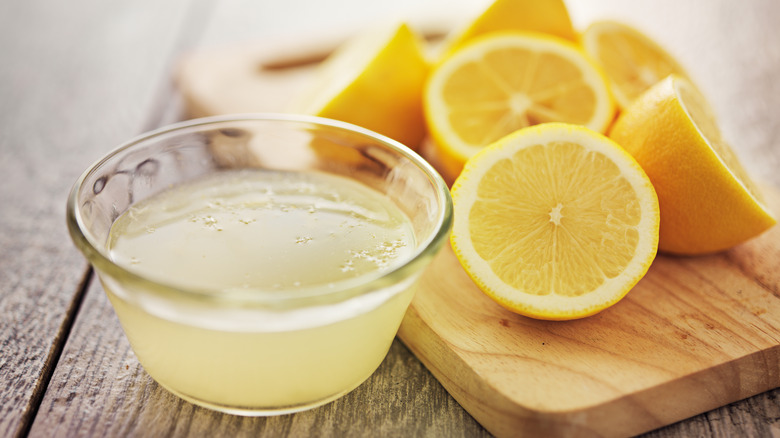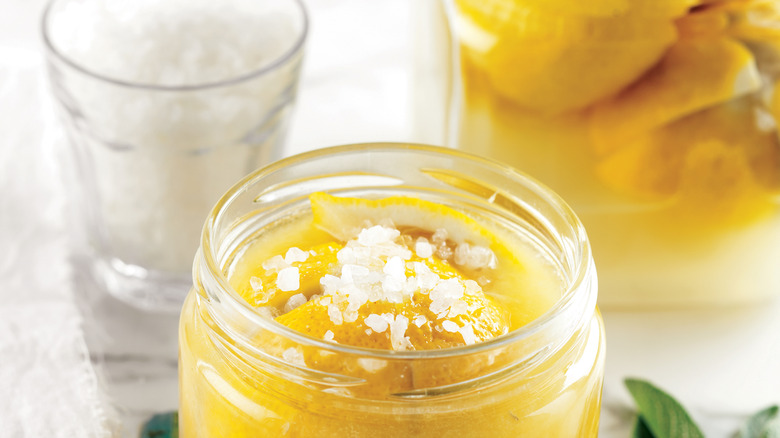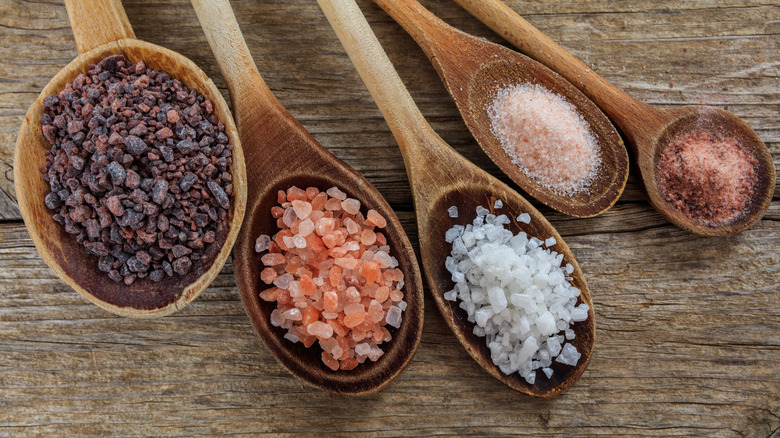The Salt Trick To Keep Lemon Juice Fresh For Months
The bright and zingy flavor of fresh lemons and their juice is hard to beat. The versatile citrus adds a lip-puckering tang to lemonade, the right touch of tartness to lemon meringue pie, and can even enhance the brininess of raw oysters.
Unfortunately, lemons can also be on the expensive side and the sunny yellow fruit can go bad quickly when cut open — especially organic varieties due to their lack of preservatives — making them not as cost-effective as other fruits. But, there is a way to make at least lemon juice last longer: Just mix in some salt.
This extra step can add months to its shelf life. All you need to do is mix in ½ teaspoon of salt per every ¼ cup of lemon juice, and you can use it any way you would normally do so in a recipe.
The science behind salt preservation
Salt effectively preserves lemon juice by preventing microbial growth and chemical reactions, as noted in an article from the National Academy of Sciences. This happens through a process called osmosis, where salt reduces a food's water activity — i.e., the available space microbes have to multiply — by sucking out the moisture, leaving behind a dehydrated environment.
Microbes need moist conditions to thrive, and so the fewer water molecules microbes have to work with, the lower the likelihood of bacterial growth. When pathogens and other microbes can't grow, they can't cause spoilage. This is the same reason why canned soups, pickled vegetables, and cured meats have much longer shelf lives than their unpreserved counterparts.
There are two primary methods for using salt to preserve food: brine or granule form. A brine is a mix of salt and water that extends the life of the food while adding flavor. For example, brined anchovies take on a salty, savory flavor that levels up Caesar salads.
The granule method is ideal for canning and meat curing. Salt is either mixed into or applied to the surface of food. Since lemon juice is a liquid, it makes sense to use this process to preserve it as brining would just water it down and add an unwanted flavor.
The best salt for preserving lemon juice
There are many different types of salt, and each one has its own role to play in the culinary world. If you're looking for the best salt for preserving lemon juice, you're going to want to pick up a box of canning or pickling salt.
Canning salt contains no iodine or anti-caking components. It's pure sodium chloride through and through. This matters quite a bit because when you use salt with these extra additives, such as table salt, it can cause liquid to cloud up and the items within it to darken, discolor, or develop spots. Table salt is completely safe to use in food preservation, but it results in a finished product that's not as aesthetically pleasing and may not have the right flavor profile.
When you have lemon juice you want to keep fresh, just follow a few key steps. Always use fresh lemons (rather than those on the cusp of going bad), and wash and dry them. Then, either use your hands or a juicer to squeeze out the juice into a glass jar and add some salt, using the 2:1 ratio. Stir until the salt fully mixes in. Make sure to put a tight seal on the jar, and then you can leave it sitting out for a few hours so it starts to ferment. After that time, keep the jar in the refrigerator. It can last up to a couple months using this process. When the time comes to use it, shake a bit to reincorporate all the ingredients and use in any recipes like normal.



